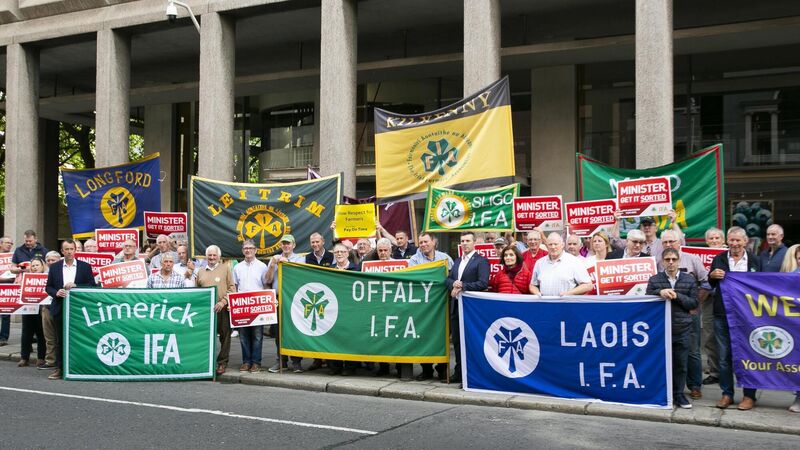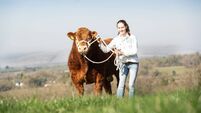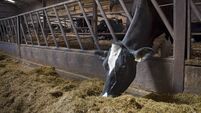Farmers demand McConalogue stands up to EU over decision on nitrates derogation

Irish Farmers' Association members protest outside the Department of Agriculture in Dublin on Thursday.
Irish farmers have vented their fury at Agriculture Minister Charlie McConalogue after changes to nitrates rules by the European Commission could force them to either reduce their cattle herds or spend money on additional land.
The European Commission has decided not to review its decision to cease Ireland's nitrates derogation. Nitrates loading rules mean that farmers must have sufficient land on which to spread the manure from their herds.













